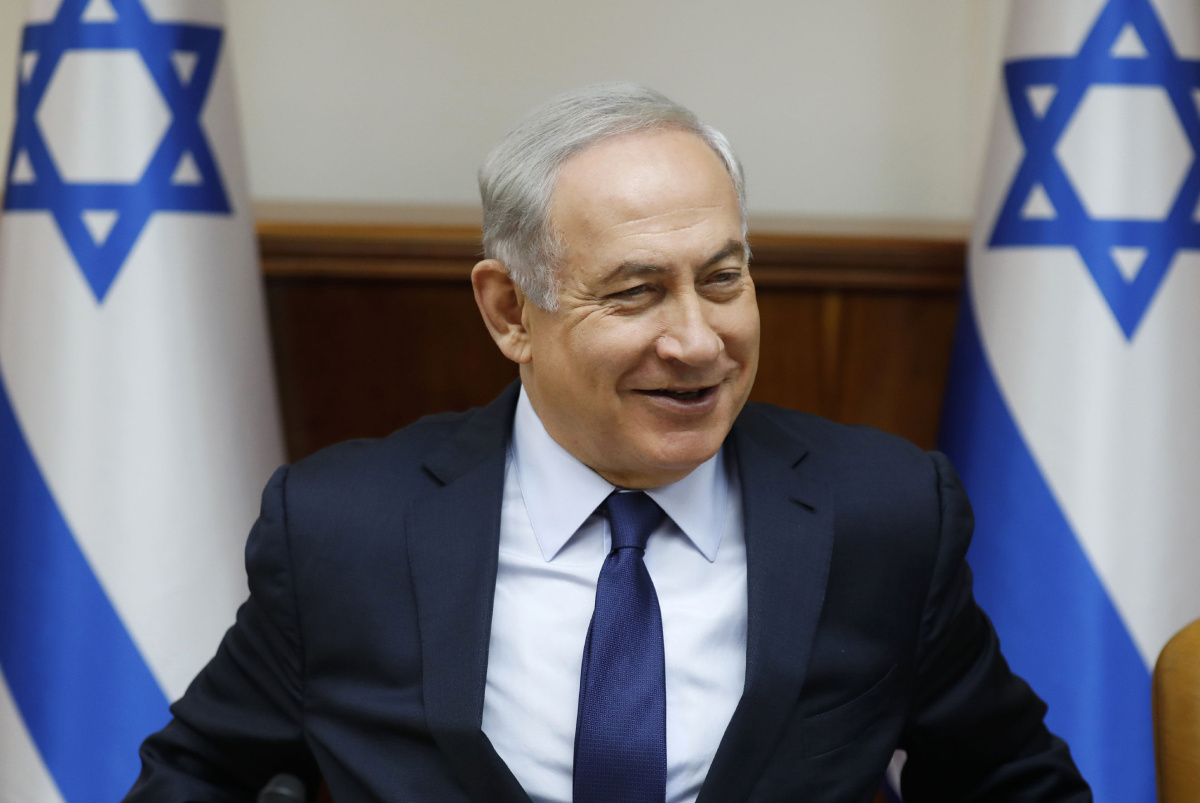HAGUE, Netherlands – The request by the International Criminal Court’s chief prosecutor for an arrest warrant against Prime Minister Benjamin Netanyahu has unexpectedly provided the Israeli leader with a significant political advantage amid a turbulent period in his career.
“The Hypocrisy of The Hague,” declared Tuesday’s front page of Yediot Ahronot, a popular mainstream daily often critical of Mr. Netanyahu.
The headline captured the widespread outrage among Israelis, who viewed the ICC chief prosecutor Karim Khan’s actions as equating Israel with Hamas, a group that many Israelis see as committed to their annihilation.
The threat of arrest warrants targets Prime Minister Netanyahu, his defense minister Yoav Gallant, and three leaders of Hamas on charges of war crimes stemming from the Hamas-led attack on Israel on October 7 and Israel’s subsequent military response in Gaza.
The ICC’s move has galvanised support for Mr. Netanyahu, even from his political rivals and critical American officials.
In recent months, Mr. Netanyahu faced mounting frustration from the Israeli public due to the government’s failure to eliminate Hamas and secure the release of 128 hostages from Gaza.
His emergency war cabinet was teetering on the edge, with key members Benny Gantz and Yoav Gallant publicly criticizing the lack of a postwar Gaza strategy.
Gantz had issued an ultimatum, threatening to withdraw his centrist party from the government if no clear plan emerged by June 8.
Additionally, Israel faced significant pressure from the United States to conclude its offensive, and the reconvening of Israel’s Parliament on Monday after spring recess reignited antigovernment protests.
However, the ICC’s arrest warrant request has shifted the narrative, portraying Mr. Netanyahu as a persecuted leader defending Israel.
Political analyst Ben Caspit noted that this development plays into Netanyahu’s favoured role as a victim, potentially rallying disillusioned supporters.
The international court’s move, seen by many Israelis as creating a false equivalence between Hamas and the Israeli government, has united Israeli political factions and some international allies in opposition.
Defense Minister Gallant condemned the ICC’s action as “despicable” and analysts suggest it may force him to reconsider his position within the government.
ICC chief prosecutor Khan defended his actions, emphasizing the need for impartiality in applying the law to all sides of a conflict.
He accused Netanyahu and Gallant of using starvation as a weapon of war, a charge linked to Israeli military restrictions on supplies entering Gaza.
Despite easing some restrictions in late October, aid groups argue that the efforts are insufficient.
The Israeli military claims it has facilitated numerous aid operations and denies placing limits on food and medicine, instead blaming aid organizations and Hamas for the crisis.
Nonetheless, the sight of children suffering in Gaza has deeply troubled many Israelis, even those on the far right.
Mr. Netanyahu has used the ICC’s actions to rally national sentiment, presenting the warrant as a threat to all Israelis and the Israel Defense Forces (IDF).
In a statement, he denounced the warrant as targeting the entire state of Israel and pledged to continue the “just war” against Hamas.
Mitchell Barak, an Israeli pollster and analyst, suggested that the ICC is the perfect opponent for Netanyahu to galvanise support, as many Israelis already view the court with suspicion.
However, some analysts warn that Netanyahu’s attempt to link his fate to that of all Israelis could backfire, particularly if the ICC’s legal process expands to include soldiers, making travel risky for Israelis.
While the United States condemned the ICC’s actions, France expressed support for the court and its independence, highlighting Israel’s obligations to respect international humanitarian law.
This stance, along with potential broader international repercussions, underscores the complex and evolving challenges facing Mr. Netanyahu and Israel on the global stage.







